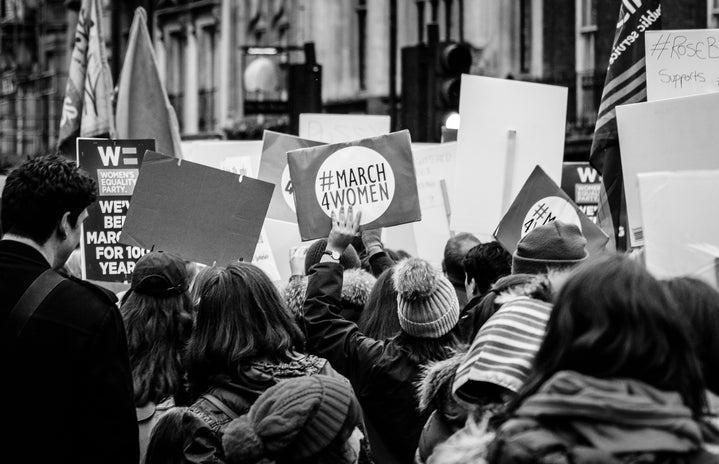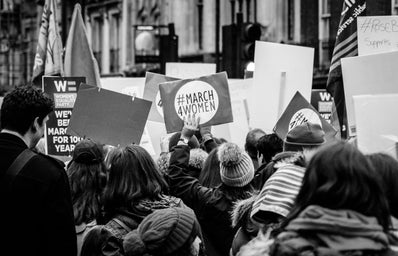Edited by: Mihir Khanna
At some point, I put myself first—I protect myself, my sanity—from the constant thanklessness of politics, of engaging with it, of how disturbing it is. Reading the news, being cognitively aware of so many atrocities, and still living in this dystopia we call Earth Our home.
When I looked up “apolitical” on Google in my research for this article, I was inundated with many opinionated thinkpieces. From characterising the position as ‘intellectual laziness’ to a sign of ‘class privilege’, it is clear that most people have strong and intensely negative stances on the issue. On one hand, I understand. A part of me even agrees with these assertions. Being apolitical is a luxury that isn’t afforded to everyone. Most of us cannot disengage from politics and move about our jolly days. But I also don’t think most people who are characterised as apolitical are genuinely such. Or at least the ones I’m talking about.
Let’s talk about climate doomerism, the belief that it is too late or that the average person is too powerless to create a meaningful impact in saving the planet. You know how all of us are liberal arts students who also really love consumerism? At one level, that’s cognitive dissonance where buying products that harm the planet and saving the planet being incompatible do not register. At another level, it’s simply nihilism. It’s apathy that comes with the recognition that the individual responsibility narrative for environmentalism is useless. When the top 100 companies produce 50% of all the world’s emissions (or whatever the exact statistic is, I can’t be bothered—and you get the idea), giving up our fast fashions and our Amazon goodies is just hurting ourselves for a little bit of moral satisfaction that will have no consequences. Perhaps that’s too raw; maybe it exposes our hypocrisy, but fundamentally, this is also a form of apolitical stance; it’s just not as visible.
When I say I’m okay with people who are apolitical, it is because I realise my baseline is different. I will never stand for someone who is an open bigot. On some level, the apolitical person I’m referring to is still a little political; they are not apathetic to the needs of the marginalized. They’re the kind of apolitical individuals who genuinely acknowledge that misogyny exists, that gay marriage should be legalised, and that the environment is in peril, but they’re not activists. This includes the apolitical people who were political once but grew disillusioned with the spectacle of it all. Activism, which can be good (like donating to causes and attending rallies) is often reduced to mere spectres, like black squares on Instagram for a country that’s one-third the population of ours and across the ocean. All this selective empathy, ignorance, and hypocrisy—it’s exhausting. So to these people, activism is a costume; their political opinions are hidden under a mask; they are informed, and they can talk about it. But why should they, when it’s so performative?
“What’s the point?” I often ask questions. What’s the point of voting, of activism, of fighting people on the Internet, of attending rallies, and of posting hashtags? On one hand, I can appreciate occasional social justice, but on the other, outspokenness is something I can be mocked for, both by people outside me and by my own demons. It’s that branding as a “social justice warrior” or “she’s the political one”—recognizing that I’ve stepped back from it, I consider myself a retired activist, which is a strange notion for an eighteen-year-old liberal arts student. It just means I engage with issues I care about, but on some level, I am very detached from a lot pf the political stuff around me. At some point, I put myself first—I protect myself, my sanity—from the constant thanklessness of politics, of engaging with it, of how disturbing it is. Reading the news, being cognitively aware of so many atrocities, and still living in this dystopia we call Earth Our home.
For me, the balancing act has been engaging in social justice issues to the level I know about, to what interests me, and to what involves me. That means feminist organisations, women-run spaces—that means HerCampus. It meant getting sad when the Supreme Court of India let down queer people and didn’t legalise gay marriage. But I cannot, for the life of me, be actively involved in party politics or student governments. They are noble endeavours, for sure, but while I have a vague idea of why I don’t like the current Union government, I don’t want to be at the helm of such conversations or run for the student government. It’s not my vibe; it’s not my place; I’ll vote, but personally speaking, I’m otherwise passive. Because my mental health won’t survive.
Being apolitical is not a crime because politics isn’t black and white. There can be multiple dimensions to an issue, and it’s better to be neutral than misinformed about something complex, like who a land belongs to, or what appropriate punishments for criminals should be.
Being political can be exhausting. So being apolitical is a privilege, but on some level, it’s a good privilege—when the apolitical person isn’t ignorant. It’s like when I look at my well-meaning boyfriend, for whom politics was just a word until I became his window to it. He’s a man who has his own demons and his own traumas, but nevertheless, he is an upper-caste straight-cis man in a society that upholds his kind for just being. He shares all the same opinions as me, but on a less intellectually engaged level due to his exposure and active involvement being less. He calls out bigotry, but he never questions. Do I hate him? No. I’m a little envious, honestly. Life has been hard on him, but it’s just life being hard on him, not society.
I wish I had the privilege to be as apolitical as him, just as others wish they could play the balancing act that allows me to engage and disengage at will. Being apolitical isn’t a crime—living in this world is. But, maybe I’m not apolitical as much as I’m cynical.


